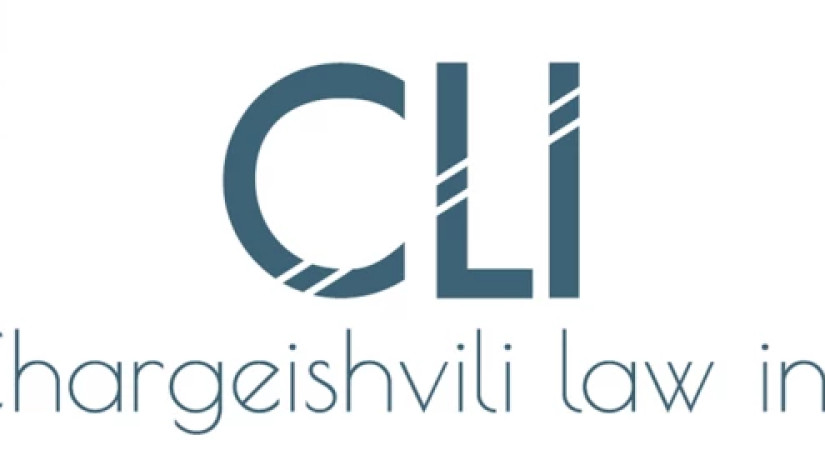Ucha Kiria, Managing Partner of Chargeishvili Law Inn (CLI) and lawyer, talks about the insolvent companies in difficult economic times and explains, that according to the assessments of the economic experts, many companies may become insolvent due to the prospective economic crisis. The most vulnerable in this regard are the Small and Medium Enterprises.
How big is the role of the head of the company in case of insolvency and how should the company behave, - bm.ge offers Ucha Kiria's review:
“According to the assessments of the economic experts, many companies may become insolvent due to the prospective economic crisis. The most vulnerable in this regard are the Small and Medium Enterprises. The insolvency refers to a situation where the business cannot fulfill its obligations, inter alia financial ones, e.g. it cannot distribute the salaries, pay the taxes or the price of received products/services, is not capable of fulfilling its contractual obligations, etc. The law of Georgia imposes several obligations on the directors of the companies. In case of their unfulfillment the directors may be subject to the civil/financial or criminal liability.
According to the section 6 of Article 9 of the Law of Georgian on Entrepreneurs, the Management entitled by law and the members of the Supervisory Board shall conduct the company's business in good faith. In particular, they shall take care as an ordinary person of sound mind in a similar capacity and under similar circumstances would, acting in the faith that their action is in the best interests of the company. If they fail to fulfil that obligation, they shall be jointly and severally liable for damages incurred by the company, with all their assets, directly and proximately. In the legal literature, two types of the duties of a director are distinguished: duty of care and duty of loyalty. The law of Georgia on Entrepreneurs specifies the directors’ obligation in case of the insolvency of the company. In particular, the section 9 of Article 9 obliges the directors to declare the company insolvent without delay, but in no case later than three weeks from the moment the enterprise becomes insolvent, as provided for by the Law of Georgia on Insolvency Proceedings. The law of Georgia on Insolvency Proceedings provides for a special regimen for a company in case of its insolvency during which the legal purpose of a company determined by the Law of Georgian on Entrepreneurs is changed. Namely, the purpose of receiving income is replaced by the purpose of paying the debts. If the former is not feasible, the assets of the company should be sold out to satisfy its creditors fairly according to the established rule; the remainder assets will be divided between the partners. The violation of a given rule for the insolvency proceedings may cause the personal financial or criminal liability of the director of a company. As it is the director’s statutory obligation to declare the company insolvent without delay, but in no case later than three weeks from the moment the enterprise becomes insolvent.
The directors of the company should be aware of the responsibility that is imposed on them in case of the company’s insolvency, which does not represent a mere formality, but rather a full liability before the state, company’s shareholders, creditors, and the partners that might be negatively affected by starting the insolvency proceedings with undue delay. Furthermore, it is important that the director acts according to corporate ethics and follows the best management practices, which inter alia means the director’s obligation to inform the supervisory board (if such exists), shareholders and discuss the matter with them. The director is also obliged to notify the relevant regulatory body (if such exists) of the insolvency of the company. For certain business sectors, e.g. banking sector, the law establishes a special rules of insolvency proceedings. To avoid the undue delay of declaring the company insolvent, it is necessary to timely assess the risks of insolvency or the fact that the company has already become insolvent, which can be achieved if the director manages the company according to the principles of the corporate ethics. If the director performs his/her obligations only formally, the likelihood that he/she will not be able to assess the risks is high, which might eventually lead to the director’s liability.
When we are talking about the possible liability of the director, we are referring to both financial and criminal liability. According to the Article 207 of the Criminal Code of Georgia, Failure of a person with managing powers or of the liquidator to file an application for initiating insolvency proceedings in the case of insolvency shall be punished by a fine, or corrective labour for up to one year or with imprisonment for the same term. Furthermore, if the director refers to the court with the request of starting insolvency proceedings with culpable delay by which the company, shareholders or the state incur some damages, the director will also be liable for compensating such damages.
To file the application of starting insolvency proceedings with the court, the company is required to prepare financial and legal documentation, as well as submit to the court application with relevant information according to the law. In addition, it is important to appoint a specialist who is going to defend the company’s interests. In regular circumstances, the main responsibility and the aim of the company’s director is to manage the company’s affairs correctly and receive the income; however, during the crisis when the company faces the insolvency or bankruptcy, the aims of the director change and he/she is obliged to ensure that insolvency or bankruptcy application is filed in a due course”, lawyer Ucha Kiria explains.











